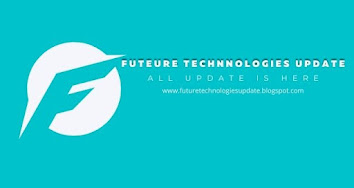How High-Tech Companies Avoid Taxes?
 |
| High-tech |
Large corporations are not giving in at all. In January 2013, a lobby group
representing several of the world's largest corporations sent a letter to the
agency drafting high-tech tax regulations for multinational corporations. The
letter focused on a small change in a little-known document, but one big enough
to worry Will Morris, head of global tax policy at General Electric, the U.S.
industrial giant.
Morris wrote the letter as chairman of the
lobbying group Business and Industry Advisory Committee and addressed it to
Pascal Saint-Amans, director of the Center for Tax Policy at the OECD. The
letter expresses concerns about changes to the latest tax treaty content.
Morris' letter said the lobby group was "concerned" about the
proposal, but it had not been taken seriously, with the word
"concerned" appearing 13 times before and after. Various submissions
on the OECD website show lobby groups, particularly those representing
high-tech companies, have been raising concerns about these concerns for more
than a year.
Such worries have their origin. A review of
hundreds of corporate complaints filed in more than a dozen countries suggests
the proposed rule changes threaten the tax structures that most of the big U.S.
high-tech industries use to avoid tax by 10 percent each year. Billions of
dollars; these regulatory changes are now being explored in greater depth. As
Morris said in the letter, the proposed regulatory changes "could
fundamentally change" the tax base for multinational corporations.
 |
| High-tech |
The OECD is grappling with one of the
toughest problems in the global economy. National tax laws are outdated and
have not kept pace with multinational corporations, which operate in various
markets but are headquartered in the lowest-tax jurisdictions. Last week the
G20 backed an action plan drawn up by the OECD that lays out some ways for
companies to pay taxes, and the OECD has issued guidelines that most Western
countries follow.
One area of concern is the current law on tax residence, or permanent
establishment, which allows businesses such as Google to set up permanent
establishments in low-tax locations such as Ireland. Countries, but generate
business income in countries with higher tax rates, such as France.
The principle of the current system is that
businesses are not taxed where they do business, but where they complete their
business transactions with customers. By setting up a company's permanent
establishment in a low-tax country, such as Ireland, and signing contracts
there, the company can move revenue earned in its main market to a lower-tax
country, where it can be taxed at a lower rate.
 |
| High-tech |
The OECD called the strategy a "deliberate
avoidance of permanent establishment legal status" and said it hoped the
rules would be amended to bring the international tax system closer to economic
realities. The OECD is trying to revise the guidelines so that companies receive
their share of tax in each country in which they do business.
At a meeting in early July, the head of the
UK Treasury's corporate and international tax department told tax professionals
that it would be difficult to defend the outcome of existing regulations.
But GE's Morris told the current rules
worked well "in most cases" and changes would have to be done with
caution.
GE declined to say whether it used such a
strategy, and the company has more than a dozen accounts of the European
subsidiary showing that its tax bases are mostly located in key markets, so it
does not rely on the tax-efficient tax structure that Morris helps defend.
 |
| High-tech |
But many businesses do, especially in tech,
which can easily operate across borders. A study of the accounts of the top 50
U.S. software, networking, and computer hardware companies by market
capitalization found that 74 percent use permanent establishment structures
that facilitate tax avoidance.
Of the 37 operators using this type of
structure, those who responded to a request for comment for this article said
they followed the tax regulations of all countries in which they operate, and
some said their arrangements were primarily designed to improve customer
service efficiency rather than for tax purposes. Consider.
Chas Roy-Chowdhury, president of the
Association of Chartered Certified Accountants (ACCA), said managers should be
accountable to investors and use legal means such as choosing the location of a
permanent establishment to save tax bills.
How to determine where the revenue is generated
In principle, countries have the right to
tax any economic activity that takes place on their territory. But for this to
happen, the enterprise must establish a resident unit for tax purposes within
the territory of the country. Whether a company is taxable within a country
depends on whether the company generates revenue within that country.
 |
| High-tech |
When should revenue be recognized?
According to the law, revenue can only be recognized after the transaction has
been negotiated and reached an agreement between the two parties. In terms of
legal nature, it is the signing of a contract. This is what some OECD member
countries want to review.
However, some enterprises hope that the
existing system can be legalized. The Business Advisory Committee's January
letter recommended that the draft provisions be included in the OECD's latest
document, Commentary on the OECD Model Tax Convention. These clauses allow
companies to continue to contract in low-tax countries to avoid paying taxes in
higher-tax markets, even though the actual transactions are done in these
higher-tax markets.
Jacques Sasseville, head of the OECD's tax
treaty unit, said: "We understand that they are trying to get us to
clarify that the way we currently operate is possible, but we are not going to
do that."
Business groups such as the U.S.
International Business Council (USCIB) say changes to permanent establishment
rules would create uncertainty. This could lead to additional disputes with tax
authorities. The risk of corporate profits being taxed more than once will hit
trade. The USCIB is the main international tax lobby in the United States.
 |
| High-tech |
But some European and American official’s
analyses showed why the OECD needed to revisit its guidance on tax
jurisdictions.
The analysis team found that the average tax
rate on non-U.S. profits of high-tech companies using the structure was 6.8
percent in 2012, less than a third of the rate in its main market and below
Ireland’s base rate of 12.5 percent. Ireland has the lowest tax rate in Western
Europe.
"People should be surprised,"
said Philip Kermode, head of the EU's HMRC. He said the ability for companies
to do business in some countries and not pay taxes there was a real problem
that the OECD had to grapple with.
Large high-tech companies
The analysis found that U.S. companies received
a lot of attention in the permanent establishment discussions. The United
States has strict rules that discourage companies from using the structure at
home, but many companies do so overseas.
Accounts of the 50 largest U.S. high-tech
companies and their subsidiaries show that only 13 file tax returns on most of
their income in the major markets where they are generated. Other companies use
mechanisms to transfer some or all of their revenue to countries with lower tax
rates.
Accounts for 16 of the top 20 U.S. software
companies by market capitalization, including Microsoft, Adobe, and Citrix,
show that they do not report for their main business in key European markets, but
do not file major operations in major European markets, but do so in smaller
populations and lower corporate tax rates in Ireland, Places such as
Switzerland and the Netherlands report their software revenue.
 |
| High-tech |
Microsoft told the establishment of the Irish
operation was “primarily in response to customer demand to increase shipments”
and said the company paid all due taxes. Adobe said the company "paid
legitimate amounts of tax in the countries in which it did business."
In its 2012 annual report, Citrix said its
effective tax rate was lower than the underlying U.S.
U.S. computer hardware makers and Internet companies have adopted similar
structures. At least 13 hardware companies, including Dell, and eight Internet
companies, including Google, Expedia, and Yahoo, among the 20 largest hardware
companies and the 10 largest Internet services companies, are doing so by
ensuring they don't have permanent establishments in key markets. Lower their
European tax burden. Enterprises can establish permanent establishments in as
many markets as they wish.
In the case of Dell, the company employs
sales and other employees at subsidiaries across Europe but manages sales by an
unlimited liability company registered in Ireland. That means the company
doesn't have to disclose its financials, so it's unlikely to see whether it
pays taxes. Dell declined to comment.
 |
| High-tech |
Google said it chose Ireland for its EMEA
headquarters for a variety of reasons, including satisfactory logistics, highly
educated staff, and low tax burdens. Expedia's filings and its website show
that the company's subsidiaries in countries such as Germany provide services
to an affiliate in Switzerland that does business with hotels or other
companies that want to sell through its website. Activity. The company declined
to comment.
Some companies move cash from key markets
to sales offices in Ireland, Luxembourg, and the Netherlands, and then transfer
this untaxed income to countries such as Bermuda and the Cayman Islands, which do
not levy a corporate income tax. Microsoft and Google use this approach.
Apple is using companies registered in
Ireland but says those companies are not tax residents anywhere. The
paradoxical mechanism was revealed to a U.S. Senate committee in May and has
been dubbed the "holy grail of tax avoidance." Apple declined to
comment, but Chief Executive Tim Cook said in May that Apple had paid all its
taxes and that the company was not relying on any tax gimmicks.
In other cases, it is not clear where the money
is going, or what taxes are being paid, because companies take advantage of
institutions that do not disclose their financials. Ireland's Unlimited is just
one of them.
Adobe's "Minimum Legal Tax
A closer look at the companies that have
published accounts provides a better understanding of how a centralized
permanent establishment arrangement works. Let's look at Adobe Systems, one of
the largest software groups in the world.
Adobe markets products that create rich
image content, such as files in '.pdf' format. Adobe's main R&D centers are
in the United States, and it has large R&D facilities in Canada, Germany,
Japan, and India, but the company also has an office on its corporate campus on
the outskirts of Dublin.
 |
| High-tech |
Adobe said the location was too small to
qualify as owning or leasing "primary assets" that must be disclosed
in annual filings. Adobe Software Trading and Adobe Systems Software two
subsidiary companies are accommodated in this office.
Adobe employs 120 people in Dublin, about 1
percent of its global workforce, according to Irish company filings; three work
in software research and development.
Revenue from Adobe's operations in Ireland,
however, has accounted for 80% of its non-US revenue in recent years, more than
$500 million a year in 2010 and 2011, according to the latest accounts
available.
Adobe's profits are only paid in Ireland at
about $3 million in sales tax because most of the profits come from Adobe
Software Trading Co Ltd, an Irish-registered company whose accounts "do
not apply to Irish companies." Law".
Adobe would not respond to any tax details,
but added that it "seeks to pay the least amount of tax following the
law." The company said it had paid "legally required taxes" in
the countries in which it operates and believed that "the tax system is
fair."
Adobe branches around the world do have tax
registrations everywhere, but the registrations are not software sellers.
Instead, they are registered as a "service provider" and are part of
a second subsidiary, Adobe Systems Software, in Dublin.












No comments:
Post a Comment